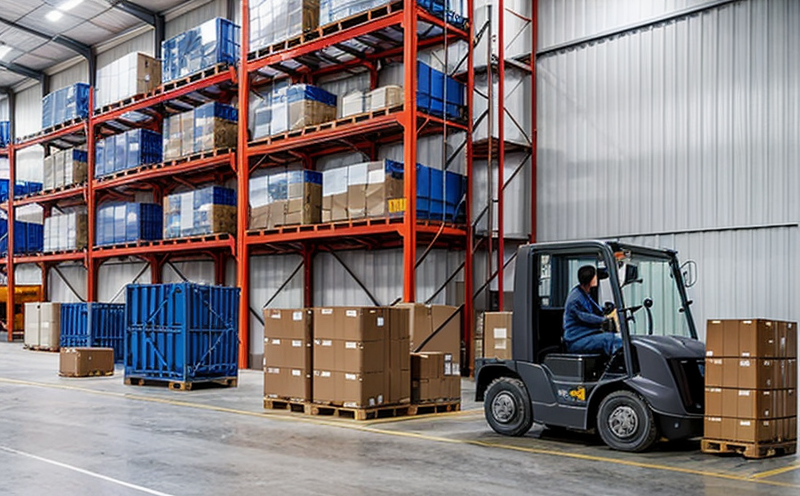FAA AC 20-152 Propeller Integrity Certification Testing
The Federal Aviation Administration (FAA) Advisory Circular (AC) 20-152 outlines the requirements for propeller integrity certification testing. This service ensures that aircraft propellers meet stringent safety and performance standards, which are critical to aviation operations.
Propellers play a vital role in generating thrust for rotary-wing aircraft such as helicopters, as well as fixed-wing aircraft. Ensuring their structural integrity is paramount given the high stress levels they endure during flight conditions. AC 20-152 mandates specific testing protocols to verify that propellers can withstand operational stresses without compromising safety.
The testing process involves several steps, including visual inspections, non-destructive evaluation (NDE), and destructive testing if necessary. Visual inspections are conducted first to identify any visible defects or anomalies. NDE methods like magnetic particle inspection (MPI) or ultrasonic testing may be used to detect internal flaws that cannot be seen by the naked eye.
Once initial checks are completed, destructive tests might follow where appropriate. These tests simulate real-world loading conditions and assess how well the propeller can handle these stresses without failure. The FAA specifies detailed criteria for determining when a propeller passes or fails based on measurable parameters such as deformation limits, stress concentrations, and fracture behavior.
Compliance with AC 20-152 is essential not only for maintaining safe flying conditions but also to comply with international aviation regulations. Non-compliance could lead to severe penalties including fines, suspension of operations, or grounding of aircraft until issues are resolved. Therefore, investing in reliable testing services ensures ongoing compliance and operational safety.
Our laboratory employs state-of-the-art equipment tailored specifically for propeller integrity tests according to AC 20-152 standards. Our team comprises experts who understand the nuances involved in interpreting results correctly against the specified criteria. This expertise guarantees accurate assessments that meet both FAA guidelines and broader industry best practices.
Environmental and Sustainability Contributions
- Evaluating propellers for AC 20-152 compliance helps prevent accidents, thereby reducing environmental risks associated with aircraft crashes.
- By ensuring reliable propulsion systems, this service supports more efficient flight operations which can lead to lower fuel consumption and reduced carbon emissions per passenger mile.
Why It Matters
The importance of FAA AC 20-152 propeller integrity certification testing cannot be overstated. Aircraft propellers are subject to significant mechanical stress during flight, making their structural integrity a critical aspect of aviation safety. By adhering to these stringent standards, we uphold the highest levels of safety and reliability for all passengers and crew.
Non-compliance with AC 20-152 could result in catastrophic failures that endanger lives. These tests ensure that propellers are capable of enduring harsh environmental conditions without compromising performance or introducing hazards into flight operations. This not only protects travelers but also contributes to the overall integrity and trustworthiness of commercial aviation.
From a regulatory perspective, compliance with AC 20-152 demonstrates an organization's commitment to adhering to established safety protocols set forth by the FAA. Such adherence fosters confidence among stakeholders, including passengers, regulators, and other industry participants. Additionally, it positions businesses favorably within competitive markets where safety and reliability are key differentiators.
Ultimately, investing in robust testing practices aligns with broader goals of promoting safer air travel while contributing positively to global aviation standards.
Benefits
The benefits of FAA AC 20-152 propeller integrity certification testing extend beyond mere compliance; they encompass enhanced safety, operational efficiency, and brand reputation. Ensuring that your aircraft's propellers meet these rigorous standards significantly reduces the risk of accidents caused by structural failures.
From an operational standpoint, compliant propellers contribute to smoother flight experiences by minimizing vibrations and noise levels. This translates into improved passenger comfort and crew satisfaction. Furthermore, reliable propulsion systems enhance fuel efficiency, leading to cost savings for operators through reduced fuel consumption.
In terms of reputation management, demonstrating commitment to safety and quality standards like AC 20-152 can strengthen customer trust in your organization. Passengers are more likely to choose airlines or manufacturers known for their adherence to high safety benchmarks. This positive perception fosters long-term relationships with customers and enhances brand loyalty.
For R&D teams, compliance with these standards provides valuable insights into design improvements that enhance performance while maintaining structural integrity. These lessons learned can be applied across future product development cycles, driving innovation within the industry.





